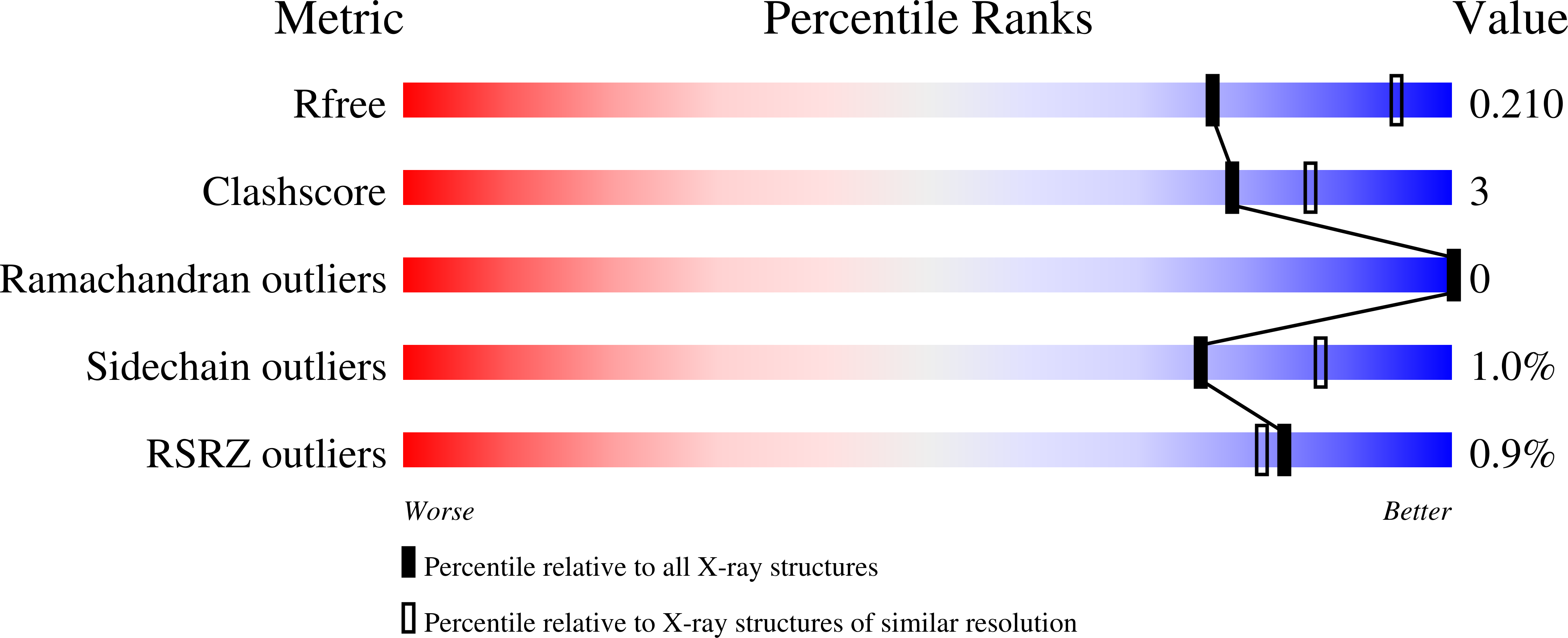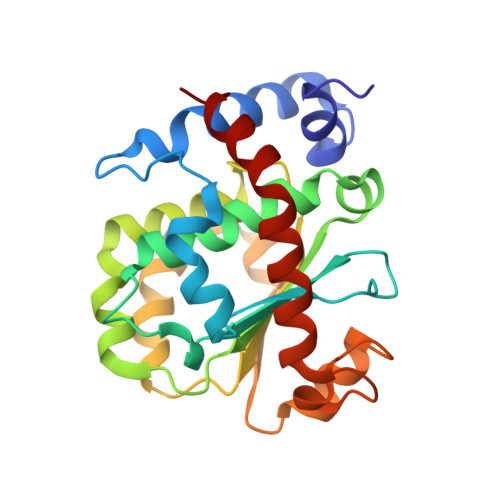Self-assembled alpha-Tocopherol Transfer Protein Nanoparticles Promote Vitamin E Delivery Across an Endothelial Barrier.
Aeschimann, W., Staats, S., Kammer, S., Olieric, N., Jeckelmann, J.M., Fotiadis, D., Netscher, T., Rimbach, G., Cascella, M., Stocker, A.(2017) Sci Rep 7: 4970-4970
- PubMed: 28694484
- DOI: https://doi.org/10.1038/s41598-017-05148-9
- Primary Citation of Related Structures:
5MUE, 5MUG - PubMed Abstract:
Vitamin E is one of the most important natural antioxidants, protecting polyunsaturated fatty acids in the membranes of cells. Among different chemical isoforms assimilated from dietary regimes, RRR-α-tocopherol is the only one retained in higher animals. This is possible thanks to α-Tocopherol Transfer Protein (α-TTP), which extracts α-tocopherol from endosomal compartments in liver cells, facilitating its distribution into the body. Here we show that, upon binding to its substrate, α-TTP acquires tendency to aggregation into thermodynamically stable high molecular weight oligomers. Determination of the structure of such aggregates by X-ray crystallography revealed a spheroidal particle formed by 24 protein monomers. Oligomerization is triggered by refolding of the N-terminus. Experiments with cultured cell monolayers demonstrate that the same oligomers are efficiently transported through an endothelial barrier (HUVEC) and not through an epithelial one (Caco-2). Discovery of a human endogenous transport protein with intrinsic capability of crossing endothelial tissues opens to new ways of drug delivery into the brain or other tissues protected by endothelial barriers.
Organizational Affiliation:
University of Bern, Department of Chemistry and Biochemistry, Bern, Switzerland.


















